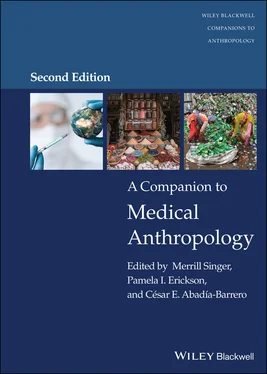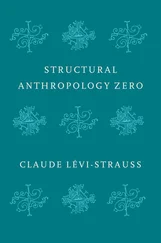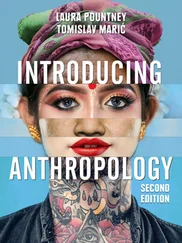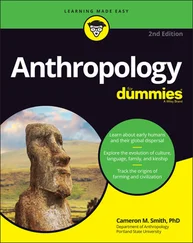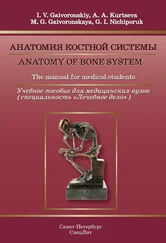Clarence C. Gravleeis Associate Professor in the Department of Anthropology at the University of Florida, with affiliate appointments in African American Studies, the Center for Latin American Studies, and the Center for the Study of Race and Racism. His research aims to explain and address how systemic racism harms health and corrupts medical research and practice. He is former editor of Medical Anthropology Quarterly , co-founder (with M. Miaisha Mitchell) of the Health Equity Alliance of Tallahassee (HEAT), and co-editor (with H. Russell Bernard) of the Handbook of Methods in Cultural Anthropology (Rowman & Littlefield, 2015). His work has appeared in public-facing venues such as Scientific American and Somatosphere , and in a wide range of scholarly journals, including American Anthropologist, American Journal of Public Health, Annual Review of Anthropology, American Journal of Human Biology, Culture, Medicine & Psychiatry , and the International Journal of Social Research Methodology , and more.
Deven Grayis a PhD student in the Department of Anthropology at the University of South Florida. Gray is a medical anthropologist with a focus on infectious disease, especially concerning mosquito-borne infectious diseases such as Zika virus and dengue fever. He has multiple field seasons of experience in the country of Belize conducting mixed-methods ethnographic and Geographic Information Systems (GIS) research on epidemic and pandemic response efforts, researching policies and interventions that influence the management or health consequences of disease. Since 2018, Gray has served as an assistant editor for the applied anthropology journal Human Organization , and recently he has gotten involved with the University of South Florida’s Center for the Advancement of Food Security and Healthy Communities (CAFSHC) to explore the effectiveness of food bank home delivery programs piloted in response to COVID-19.
David Himmelgreenis Professor in the Department of Anthropology and Director of the Center for the Advancement of Food Security & Healthy Communities at the University of South Florida. Himmelgreen is a biocultural nutritional anthropologist with expertise in maternal-child nutrition, growth and development, food security, dietary change and health, and community nutrition programming. He has conducted research in Costa Rica, Lesotho, India, Puerto Rico, and the United States. He served as Chair of the Department of Anthropology from 2014 to 2021. Since 2015, he has been involved in multiple projects addressing food insecurity in Tampa Bay. Himmelgreen is currently conducting research on a food prescription program, college student food insecurity, and diabetes self-management during COVID-19. He has over 100 publications and has received funding from NSF, USDA, Fulbright Commission, state agencies, and private and corporate foundations for research and programs aimed at reducing food insecurity and improving health.
Craig R. Janesis Professor and Director of the School of Public Health Sciences at the University of Waterloo in Ontario, Canada. His current work focuses on the intersections of anthropogenic environmental change and global health systems, including a countrywide study of the impact of climate change on the livelihoods and health of Mongolian pastoralists, assessments of the public health consequences of global resource extraction in Mongolia and Zambia, and a coupled social-ecological systems approach to identifying and mitigating the impacts of flooding regimes on the access to essential health services in western Zambia. He has also investigated the effects of globalized health systems reform programs on indigenous health systems, access to health services, and maternal health outcomes. In addition to his work in Mongolia and Zambia, he has conducted research in the United States, the Tibet Autonomous Region of China, Argentina, and Samoa. He is a past Board Chair and National Coordinator of the Canadian Coalition for Global Health Research, a Fellow of the Balsillie School for International Affairs in Waterloo, and with his colleagues in Zambia codirects the Zambezi Ecohealth Partnership.
Thomas Leathermanis Professor of Anthropology at the University of Massachusetts, Amherst. He is a biocultural anthropologist whose work adresses social change, inequalities, and health in Latin America and the U.S.. Work in the Yucatan of Mexico has focused on the social, nutritional and health impacts of the rapid growth of tourism-based economies, and the “coca-colonization” of diets in the Yucatan. Long term research in the southern Peruvian Andes focused on the co-constitutive nature of poverty, inequality and illness, and the links between structural violence and the political violence manifested in a 20 year civil war (1980-2000). Recent work and interests are on shifts in regional economies, food security and health in a post-conflict Peru. He co-edited Medical Pluralism in the Andes with Joan Koss and Christine Greenway (2004), and Building a Biocultural Synthesis: Political Economic Perspectives in Biological Anthropology (1998) with Alan Goodman; part of a long term theoretical interest in developing and expanding a more critical biocultural anthropology.
Jennifer Liuis Associate Professor in the Department of Anthropology, and cross-appointed in the School of Public Health and Health Systems, at the University of Waterloo in Ontario, Canada. Her work intersects with science and technology studies (STS) and global health. Her studies include ethnographic analyses of stem cell research and genetics in relation to identity, ethics, and governance in Taiwan, where she was a Fulbright Scholar. More recently her work focuses on food and water security, gender, and health data use in rural Zambia. Other projects include industrial water pollution and water governance in Bangladesh, women in engineering in Canada, and HIV medication adherence in San Francisco. She serves as Co-convener of the Global Health Research Cluster at the Balsillie School of International Affairs and as a Board member of the Canadian Coalition for Global Health Research.
Lenore Mandersonis Distinguished Professor of Public Health and Medical Anthropology in the School of Public Health, University of the Witwatersrand, South Africa. Her work is concerned with inequality, the social context of infectious and chronic diseases in Australia, Southeast and East Asia, and Africa, and increasingly, the environment. She has published some 750 books, articles, book chapters, and reports in these and other areas, including Surface Tensions (2011), Connected Lives (edited with Nolwazi Mkhwanazi, 2020), and Viral Loads (edited with Nancy J. Burke and Ayo Wahlberg, 2021). She was awarded the Society of Medical Anthropology Career Achievement Award in 2016, and in January 2020, she was admitted as a Member of the Order of Australia.
Emily Mendenhall, PhD, MPH, is Medical Anthropologist and Professor at the Edmund A. Walsh School of Foreign Service at Georgetown University. She has published widely at the boundaries of anthropology, psychology, medicine, and public health and is the inaugural co-editor-in-chief of Social Science and Medicine—Mental Health. Dr. Mendenhall led a Series of articles on Syndemics in The Lancet ; and she has published several books, including Rethinking Diabetes: Entanglements with Trauma, Poverty, and HIV (2019), Syndemic Suffering: Social Distress, Depression, and Diabetes among Mexican Immigrant Women (2012), and Global Mental Health: Anthropological Perspectives (2015). In 2017, Dr. Mendenhall was awarded the George Foster Award for Practicing Medical Anthropology by the Society for Medical Anthropology. Her newest book is Unmasked: COVID, Control, and the Case of Okoboji .
Читать дальше
